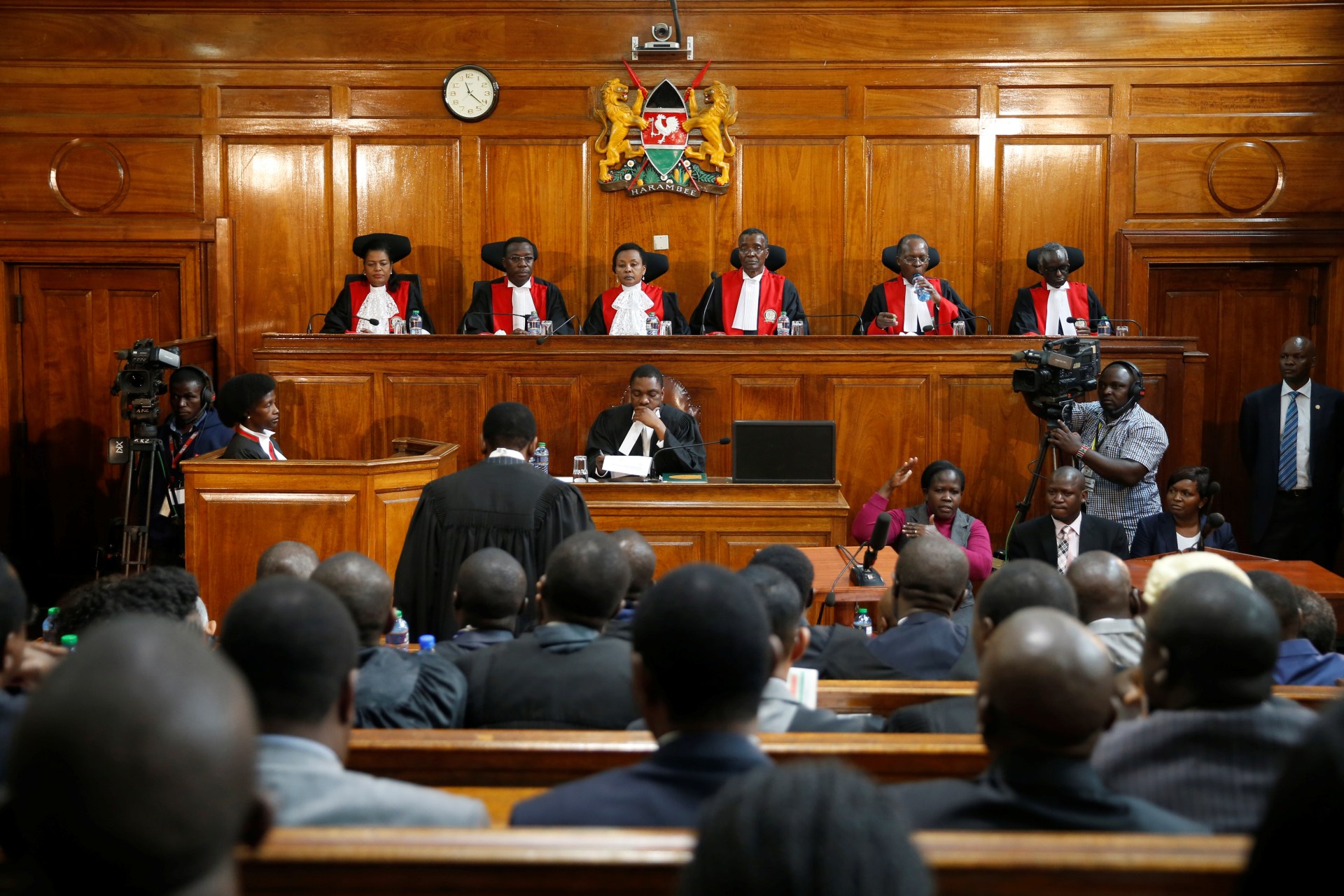Victory for the Rule of Law in Kenya

By experts and staff
- Published
By
- John CampbellRalph Bunche Senior Fellow for Africa Policy Studies
The Kenyan Supreme Court ruled on Friday to annul the presidential elections that took place on August 8, arguing that the Independent Electoral and Boundaries commission, the agency charged with conducting the election, did not follow the requirements of the constitution. The move astonished Kenyans and most other observers. The court’s action, at least in the short term, was popular; for at least some Kenyans, the manifestation of judicial independence was more important than who was elected president. The new independence of the Supreme Court appears to be tied to Kenya’s new and progressive constitution, adopted in 2010 following deadly post-election violence in 2007. The Court’s vote to annul was four to two, with one judge absent because of illness, and three of the four who voted to annul having been called to the bench under the new constitution. Kenyan presidential election politics and elections have been deformed by ethnic appeals, and Kenyans traditionally have had a low opinion of the judiciary, which they saw as in the pocket of any incumbent president. With this decision, law, process, and an independent judiciary appears to have trumped ethnicity. Can it last?
New elections are scheduled for October 17, with no new candidates permitted. That means President Uhuru Kenyatta and Raila Odinga will face off again. Estimates are that on a vote per capita basis, the annulled elections were among the most expensive in the world. Certainly, the October elections will again be a fiscal drain, although there are thus far few details about how the new polling will actually unfold. There are also complaints that the new elections have increased economic uncertainty and will negatively affect the business climate. There is also the fear of resurgent ethnic conflict and violence between Kenyatta and his Kikuyu, in alliance with his deputy president William Ruto’s Kalingen, and Odinga’s Luo and their allies.
The recent rhetoric of Kenyatta and Odinga has not been reassuring. Kenyatta has attacked the judges, saying (among other things) that the judges were bought off by “white people and other trash.” (There are an estimated twenty thousand white people in Kenya out of a total population of more than 48 million). Kenyatta has also, in effect, threatened the independence of the judiciary. For his part, Odinga has said that he will not participate in the October 17 elections absent certain guarantees, including the arrest of certain members of the Independent National Electoral and Boundaries Commission, whom he characterized as “hyenas.” Neither “big man” is calling unambiguously for the scrupulous observance of the rule of law, though both have accepted the Supreme Court’s ruling.
It is striking that the annulled elections were generally praised by foreign election observers, but their observation was primarily of the polling itself. In Africa, now, elections are often stolen at the points where voting tallies are consolidated, rather than at the ballot box. This process is hard for foreigners to observe, and, in any case can take place some days after the polling itself. Too often, foreign observers leave as soon as the polling is over and preliminary results have been announced. It remains to be seen what the foreign observer presence will be on October 17. Certain Kenyan non-governmental organizations also endorsed the elections. The bottom line is that election observers appear to have made the wrong call about the August 8 Kenyan elections. That is bound to raise questions about the efficacy of foreign observers of future elections.
Kenya is entering unchartered territory. What happens after the October 17 elections? Will the losing candidate again appeal to the Supreme Court? Or will his supporters take to the streets? Kenyatta and Odinga have a heavy responsibility for leading their followers away from violence.